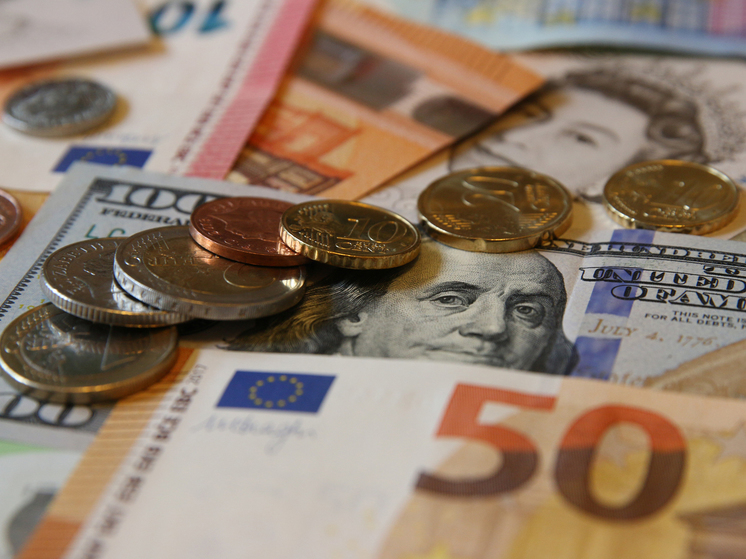The Saudis threatened to sell off EU debt securities: experts assessed the risks
The Russian Federation, forced to constantly overcome the growing sanctions pressure of the West, has received an unexpected ally. Saudi Arabia said it would not leave unanswered the possible confiscation of frozen Russian assets in the West. In the event of such actions, which grossly violate international law, Riyadh threatened to sell off the debt securities of the European Union. It is noteworthy that the Saudis’ demarche was reported not by a seemingly interested Moscow, but by the American agency Bloomberg, which gives this story additional poignancy.

The G7 countries, as is known, immediately after the start of the SVO in Ukraine, froze almost $300 billion belonging to Russia under their control. Initially, the authors of this decision spoke exclusively about “blocking” Russian assets, but as the conflict deepened and expanded, they changed their rhetoric to more aggressive, starting to discuss the possible confiscation of these billions and their use to help Ukraine. Although it is quite obvious that in this case we are talking about banal theft, violating all legal norms that have developed in the financial world. This has been repeatedly pointed out by Russian officials — in particular, presidential press secretary Dmitry Peskov. They also said that such financial and legal arbitrariness on the part of the G7 would undermine confidence in the currencies and securities of these countries on a global scale. Until now, the West has not reacted too much to these threats, apparently considering them a purely propaganda response from Moscow.
But the situation with Saudi Arabia’s demarche shows the absolute realism of such a scenario. According to Bloomberg sources, the Saudis gave a “clear signal” to the West about the need to comply with international law in relation to Russian assets. Otherwise, they threatened to get rid of EU securities, including French ones. At the same time, the Ministry of Finance of Saudi Arabia is not inclined to “wave a saber” and prefers diplomatic formulations. However, as foreign commentators note, the very discussion of this option makes it clear to the West: there is a limit to everything, international law must be respected. And Saudi Arabia may become the “first sign” that does not want to support the financial chaos of the EU sanctionsists.
Another question: how serious damage can Riyadh’s retaliatory steps cause to the G7 countries if it comes to them? To do this, it is worth turning to the numbers. Saudi Arabia is one of the ten largest foreign holders of US government debt. The country's total foreign exchange reserves amount to $455.2 billion. American treasury bonds amount to $135.9 billion.
As for the EU, the total investments of the Gulf countries in euros and in securities denominated in this currency are about 15.1 billion. At the same time, the reserves of the European Central Bank (ECB) are about 69 billion euros. From a comparison of these figures, it becomes obvious that Saudi investments in the EU economy are not that significant and their sale is unlikely to have any devastating impact on the financial market.
However, while the Saudis alone are unlikely to harm the eurozone economy, they could set off a chain reaction — with a major sell-off of EU government debt exacerbating the eurozone's weak economic performance. According to open data, foreign investors own approximately 50% of the public debt of France, 45% of Germany, 40% of Spain, 30% of Italy… Under certain developments, a significant part of these investments will be at risk of being sold off, which threatens an almost inevitable collapse of the euro .
However, it is not yet a fact that Saudi Arabia will fulfill its threat. “Most likely, this is a signal to the United States and the entire collective West that Saudi Arabia does not welcome punitive measures against independent countries. Today the West is trying to steal assets from Russia, and tomorrow it will steal from any other sovereign country,” explains BitRiver Communications Director, economist Andrei Loboda. According to him, such a policy of the collective West cannot but worry the BRICS countries, which, as of this year, includes Saudi Arabia. However, one must keep in mind: Saudi Arabia is far from the largest holder of EU government debt. Even if they sell all their European bonds, this could only cause temporary panic on the stock exchange. “China is the largest holder of European countries' bonds. If he, together with Saudi Arabia, sells bonds, then this will really lead to a serious collapse of European bonds,” the expert suggests.
At the same time, he stipulates that today nothing indicates such a development of events: China is not taking risks create uncertainty in global financial markets. “Nevertheless, the trial balloon has already been launched and has rolled towards Europe. Now it’s the EU’s turn to think,” believes MK’s interlocutor.
“If the position of the Saudi Ministry of Finance becomes the official position of the state, it will have weight in the political arena,” says Alexander Shneiderman, head of the Alfa-Forex department. , “and if the words are followed by concrete actions by Riyadh, then the consequences for the US and EU countries could be at least unpleasant, and at maximum lead to a crisis of underfunding.” At the same time, the expert emphasizes: there is no goal in any way to defend Russian interests in these statements by Riyadh — Americans and Europeans were just reminded of the need to comply with the norms of international law, which should be the same for everyone.


